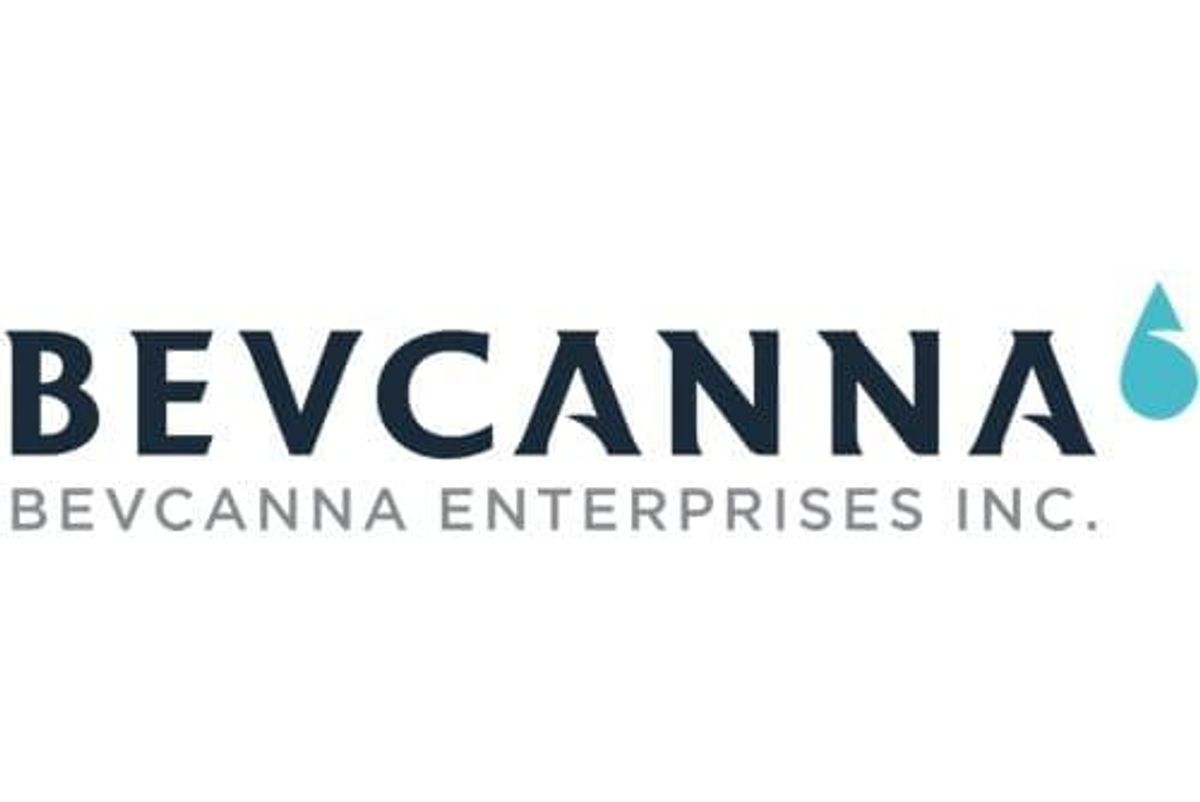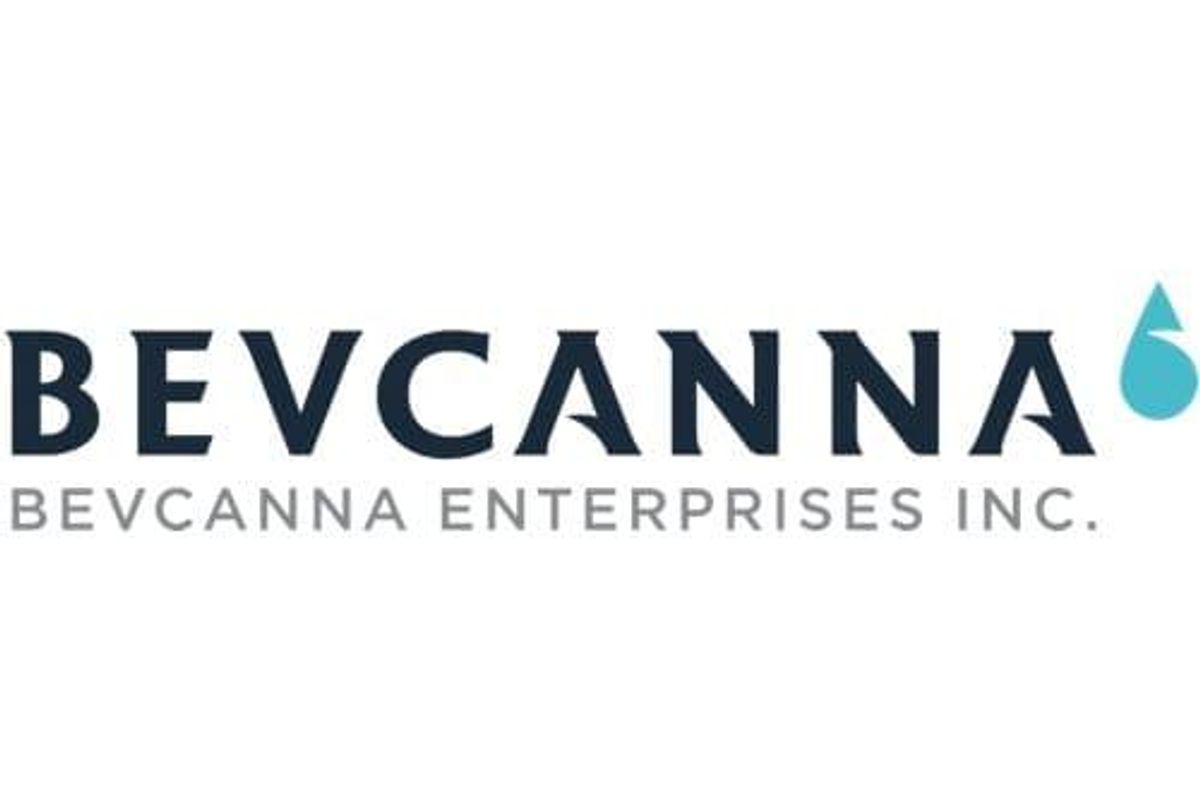
Ability to test the taste, smell, feel and visual appeal of beverages in development will provide a significant advantage for BevCanna and its white-label clients
Emerging leader in innovative health and wellness beverages and products, BevCanna Enterprises Inc. ( CSE:BEV , Q:BVNNF , FSE:7BC ) (" BevCanna " or the " Company ") announces today that it has been granted an amendment to its Health Canada-authorized Cannabis Research License to include sensory evaluations of cannabis beverages in its product development trials. This update to the License will allow BevCanna to conduct on-site human assessments of the taste, smell, feel and visual appeal of its products in development.
These new product trial capabilities, unique in the Canadian cannabis beverage market, will open up significant opportunities in the formulation and refinement of BevCanna's products and those of its white-label clients. The ability to assess critical success factors of new products will enable BevCanna to test, evaluate and refine beverage formulations based on additional consumer appeal factors, increasing and accelerating the commercial success of new products.
"Being able to test the taste, smell, feel and visual appeal of our products gives us a significant advantage in being able to develop the innovative, appealing beverages that BevCanna is known for in the cannabis beverage market," said Melise Panetta, President of BevCanna. "This advancement further cements our position as the premier specialty cannabis beverage manufacturer in Canada."
The product trials will take place on-site at BevCanna's manufacturing facility near Osoyoos, British Columbia.
The Company also announces that it has published an updated corporate presentation that may be viewed at: https://bevcanna.s3.us-east-2.amazonaws.com/BEV+x+Embark+-+M%26A+Deck+-+Final.pdf
About BevCanna Enterprises Inc.
BevCanna Enterprises Inc. ( CSE:BEV , Q:BVNNF , FSE:7BC ) is a diversified health & wellness beverage and natural products company. BevCanna develops and manufactures a range of alkaline, plant-based, and cannabinoid beverages and supplements for both in-house brands and white-label clients.
With decades of experience creating, manufacturing and distributing iconic brands that resonate with consumers on a global scale, the team demonstrates an expertise unmatched in the nutraceutical and cannabis-infused beverage categories. Based in British Columbia, Canada, BevCanna owns a pristine alkaline spring water aquifer and a world–class 40,000–square–foot, HACCP certified manufacturing facility, with a bottling capacity of up to 210M bottles annually. BevCanna's extensive distribution network includes more than 3,000 points of retail distribution through its market-leading TRACE brand, its Pure Therapy natural health and wellness e-commerce platform, its fully licensed Canadian cannabis manufacturing and distribution network, and a partnership with #1 U.S. cannabis beverage company Keef Brands .
On behalf of the Board of Directors:
John Campbell, Chief Financial Officer and Chief Strategy Officer
Director, BevCanna Enterprises Inc.
Disclaimer for Forward-Looking Information
This news release contains forward-looking statements. All statements, other than statements of historical fact that address activities, events or developments that the Company believes, expects or anticipates will or may occur in the future are forward-looking statements. Forward-looking statements in this news release include statements regarding: the update to the License will allow BevCanna to conduct on-site human assessments of the taste, smell, feel and visual appeal of its products in development; that these new product trial capabilities, unique in the Canadian cannabis beverage market, will open up significant opportunities in the formulation and refinement of BevCanna's products and those of its white-label clients; the ability to assess critical success factors of new products will enable BevCanna to test, evaluate and refine beverage formulations based on additional consumer appeal factors, increasing and accelerating the commercial success of new products; the testing of the Company's products gives the Company a significant advantage in being able to develop the innovative, appealing beverages that BevCanna is known for in the cannabis beverage market; this advancement further cements its position as the premier specialty cannabis beverage manufacturer in Canada; the product trials will take place on-site at BevCanna's manufacturing facility near Osoyoos, British Columbia. The forward-looking statements reflect management's current expectations based on information currently available and are subject to a number of risks and uncertainties that may cause outcomes to differ materially from those discussed in the forward-looking statements.
Although the Company believes that the assumptions inherent in the forward-looking statements are reasonable, forward-looking statements are not guarantees of future performance and, accordingly, undue reliance should not be put on such statements due to their inherent uncertainty. Factors that could cause actual results or events to differ materially from current expectations include, among other things: general market conditions; changes to consumer preferences; and volatility of commodity prices; and other factors beyond the control of the parties. The Company disclaims any intention or obligation to update or revise any forward-looking statements, whether as a result of new information, future events or otherwise, except as required by law, and the Company does not assume any liability for disclosure relating to any other company mentioned herein.
The Company also announces today that it entered into a promotion and investor relations agreement dated October 19, 2021 with MZHCI, LLC (the " Consultant ") pursuant to which the Consultant agreed to provide certain promotion, corporate branding, marketing, online corporate communications and investor relations services to the Company for a term of one month commencing on October 20, 2021 and will automatically renew every twelve months thereafter unless either party delivers to the other sixty days written notice of termination prior to the end of the then current term, for monthly cash consideration of US$13,500 and the grant of 1,000,000 options to purchase up to 1,000,000 common shares of the Company at an exercise price of $0.275 per common share, all of which vest immediately and are exercisable until October 19, 2023. The Consultant's contact information is as follows: MZHCI, LLC, Contact Person: Ted Haberfield, Tel: 1(760) 230-4421, 5055 Avenida Encinas, Suite 130, Carlsbad, CA 92008. The services to be provided by the Consultant may include consulting relating to: investor relations, investment awareness and outreach, financial media relations, public market insight, and may be provided through external portals and financial media, online presentations, and other platforms and media.
The Company also announces today that it has granted an aggregate of 5,000,000 stock options (including the options granted to the Consultant) to purchase up to 5,000,000 common shares of the Company to consultants of the Company. 4,000,000 of the options granted vest immediately upon the grant and are exercisable for a period of 1 year from the date of grant at a price of $0.275 per common share. 1,000,000 of the options granted vest immediately upon the grant and are exercisable for a period of 2 years from the date of grant at a price of $0.275 per common share.
1,000,000 of the options and the common shares underlying such options are subject to a hold period of four months and one day from the date of grant and 4,000,000 of the options and the common shares underlying such options are not subject to any hold period. None of the securities acquired in the grant will be registered under the United States Securities Act of 1933, as amended (the " 1933 Act "), and none of them may be offered or sold in the United States absent registration or an applicable exemption from the registration requirements of the 1933 Act. This news release shall not constitute an offer to sell or a solicitation of an offer to buy nor shall there be any sale of the securities in any state where such offer, solicitation, or sale would be unlawful.
View source version on businesswire.com: https://www.businesswire.com/news/home/20211020005376/en/
For media enquiries or interviews, please contact:
Wynn Theriault, Thirty Dash Communications Inc.
416-710-3370
wynn@thirtydash.ca
For investor enquiries, please contact:
Bryce Allen, BevCanna Enterprises Inc.
778-766-3744
bryce@bevcanna.com
